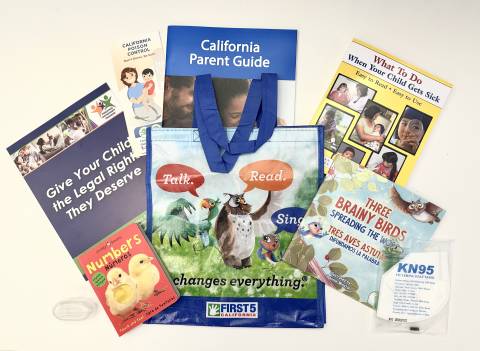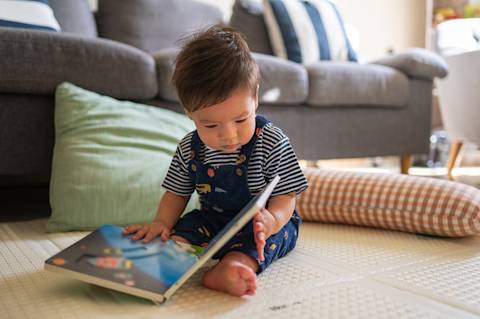Finding a reliable babysitter is a high priority for many caregivers, whether it’s for a much-needed date night, work, or some time to recharge. While the search to find a qualified babysitter can be challenging, we’ve outlined the steps you can take to find a qualified babysitter who meets your needs and provides a positive experience for you and your child.

Before you start your search for a babysitter, it’s helpful to consider your family’s schedule and requirements. Be prepared to answer questions like:
How many days and hours do you need a babysitter?
Will this be an ongoing need or an every-once-in-a-while need?
How many children do you have? How old are they?
Does your child have any unique needs or requirements?
What budget do you have for child care?
Ask for recommendations: If you can, talk to trusted friends, family, neighbors, or coworkers who may have experience with babysitters. They can provide you with referrals or suggestions based on their positive experiences.
Look into local community resources: You can try searching for community organizations, religious institutions, or nonprofit groups that offer low-cost or subsidized babysitting services. They may have programs or recommendations specifically designed for various budgets. Read our previous article about finding affordable child care options in California.
Contact local colleges or universities: Local colleges or universities that have education or child care programs may have students studying these fields who are looking for practical experience and may offer affordable babysitting services. Check bulletin boards, career service centers, or online student forums for postings or announcements.
Explore online platforms and apps: Many different online platforms and apps are designed to connect parents with babysitters. Some popular options include Care.com, Sittercity, and UrbanSitter. These platforms often provide a range of babysitters with various experience levels, and you can filter search results based on your specific needs and budget.
Join a babysitting co-op: A babysitting co-op is a group of caregivers who take turns providing child care for each other's children. Instead of paying for babysitting services, caregivers exchange child care hours within the co-op, allowing each member to have access to affordable and reliable child care while fostering a supportive community. For example, if a co-op member babysits your child for two hours one day, then you agree that you’ll babysit their child for two hours in exchange. You can try searching for a babysitting co-op on a website like Nextdoor, by asking around in your neighborhood or exploring postings at local community centers.
Ask local schools and community centers: Contact local schools, community centers, or after-school programs to see if they offer or know about child care options. Some organizations provide child care services for a reduced fee or have information about local resources to meet families’ budgets.
Once you find a few potential candidates, it’s important to evaluate who is the best fit for your family.
Set up an in-person interview to learn more about their experience with babysitting, their availability, and rates. You can also learn a little more about their approach to babysitting and evaluate if it will be a good match for your family. Potential interview questions to ask include:
Do you have previous experience or any training in early childhood development?
What are your strengths and weaknesses as a babysitter?
What is your philosophy on child care?
What would you do in an emergency? Can you talk about a time you had to make quick decisions in an emergency? What did you do?
Are you certified in baby CPR?
What are your favorite activities to do with children?
What are your rates?
Do you have any references?
Have you undergone a background check? If not, are you willing to undergo a background check?
Next, it is important to check the references for any potential babysitter, such as the babysitter’s previous employers and families. Ask about the babysitter’s punctuality, reliability, and ability to handle difficult situations.
Finally, it’s advised to do a background check. The website Free Background Check enables you to search if someone has criminal records. For a more detailed background check, you can use websites like eNannySource. There is a fee involved with the more in-depth background checks.
A playdate with a potential new babysitter can be an excellent opportunity for parents to see if the babysitter is the right fit for your family. You can try organizing games, arts and crafts, or outdoor play for your child to do with the candidate so you have a chance to observe how the potential babysitter engages with your child. As they play, keep an eye out for:
Communication skills: Pay attention to how the babysitter interacts with your child. See if the babysitter actively listens, asks questions, and communicates clearly. Handling challenges: When minor challenges—like a tantrum or disagreement—happen, do your best to stand back and watch how the babysitter resolves the conflict. Note if the babysitter remains calm and patient and effectively resolves the problem.
Safety awareness: See if the babysitter watches your child attentively and keeps an eye out for any potential hazards. Additionally, check if the babysitter follows any specific safety instructions you provide, such as dietary restrictions or allergies.
Compatibility with your child: As your child and the babysitter play together, observe if they show genuine care, warmth, and understanding toward your child’s needs and emotions. Do they laugh and have fun? Or does the babysitter sit back and avoid engaging with your child?
Caregiver-babysitter dynamic: Notice how the potential babysitter interacts with you as a parent. Do they respect your authority and parenting style? Are they open to your instructions and preferences? A good babysitter should collaborate with caregivers and communicate openly.
Make sure you share any rules you have, such as how to deal with punishment or what foods you don’t want your child to eat.
It’s also important to talk about any medical conditions or allergies your child has that the babysitter needs to be aware of. Discuss with the babysitter if they’re comfortable addressing those issues should they arise. For example, if your child has a severe allergy, make sure the babysitter is comfortable with administering an EPI pen if needed.
At the end of the day, it’s important to pay attention to your gut feelings and overall comfort level with the potential babysitter. You can do all the observing and vetting, but as the parent, you know who will be the best fit for your child.






